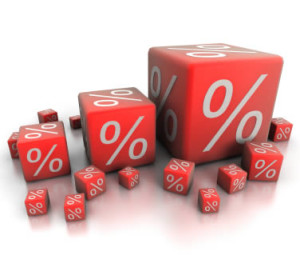
We all comprehend that mortgage is a long-term commitment; hence, we need to strategically plan the route. With most banks in the UAE offering initial fixed term periods thereafter providing options for standard variable rates (SVRs), it becomes vital to understand the implications of floating rates as these cover a major portion of the mortgage repayments.
Various mortgage lenders in major markets across the world have raised their SVRs. We can anticipate its impact on the UAE property market which may further dampen the spirit of the mortgage market considering the stringent parameters set by the banks.
A few UAE banks have restructured their lending rates with guidelines set by the Central Bank as the cost of funding has marginally increased. It is, therefore, important to understand the consequences of adjustable/variable rates.
Standard variable rate
SVR mortgage, also known as adjustable rate mortgage (ARM) or flexible rate mortgage, is a form of mortgage in which the interest rate is adjusted sporadically based on the benchmark that simulates the cost of the bank’s borrowing on the financial markets. Hence, variable rate mortgage loans are offered at the bank’s standard variable rate/base rate. Most banks have two components in the variable rates: base bank margin rate and an adjustable component of Emirates Interbank Offered Rate (EIBOR). If your mortgage is based on SVR, the payments will swing from time to time based on the period of the EIBOR margins. SVR is influenced by changes in the lending parameters of the Central Bank base rate. The rates are governed by the cost of acquiring funds in the bank and the treasury department usually provides the rate in the bank. However, a mortgagee may also adopt to change the variable rate while the base rate remains unchanged. The UAE Central Bank sets the EIBOR and circulates the contemporary rate on its website daily. The EIBOR is premeditated as an average of UAE banks. A board of 11 UAE banks acquiesce everyday rates, the two uppermost and bottommost rates are aloof and a middling mean is then taken. Most banks have three or six months EIBOR rates linked with bank margin rates.
SVR mortgage pros
Under variable base lending parameters, your monthly repayments can vary in line with interest rates. If your bank decides to reduce your rate, your repayments will also reduce, which could be frustrating if you are stuck in the fixed rate option. A variable mortgage rate provides more flexibility than most fixed rate home loans because you are aligned with current market dynamics and could enjoy early settlement fees, which are usually lower or waived after a certain period. Opt for a variable rate when interest rates are falling in the financial markets to reduce your monthly installments.
SVR mortgage cons
One of the disadvantages for a home buyer with a variable rate mortgage is payment shudder. If interest rates increase, home buyers may experience abrupt and substantial escalations in periodic mortgage overheads. Before signing a variable rate mortgage, understand the complete process and its future implications.
Bottom line
Considering the historic low rate and the movement in the worldwide market with rate rises rumoured to be just around the corner, borrowers on variable rates must keep a vigilant eye on the market. If interest rates start to climb, a fixed rate mortgage may be the way to go as it can leverage the implications of higher interest rates and give you protection against fluctuation. When remortgaging a mortgage, consider the associated costs in combination with the interest rate.
Source: As published on Gulf New Freehold by Dhiren Gupta
2 Comments
Excellent way of describing, and good paragraph to get information
It’s an awesome article in favour of every one of the online people; they are going to get benefit from this I am certain.